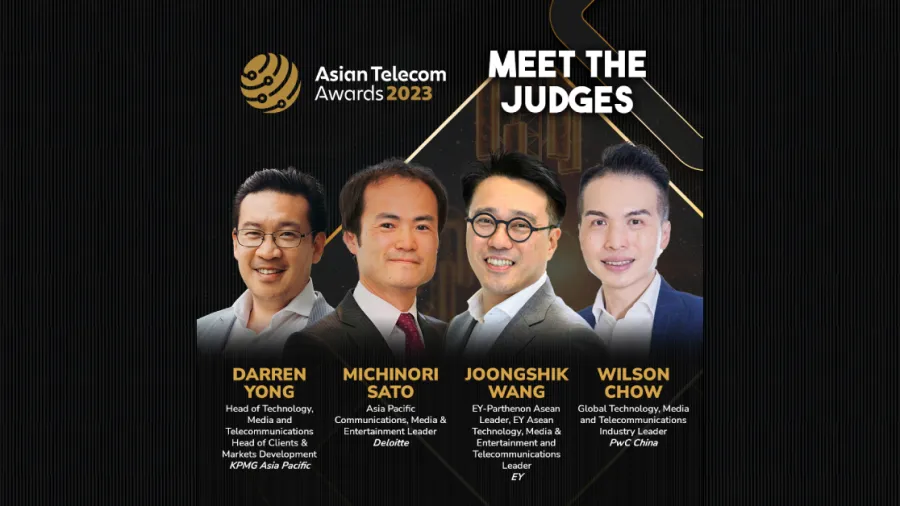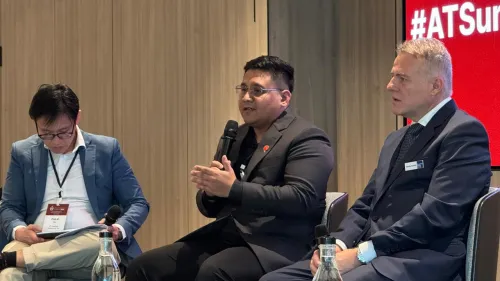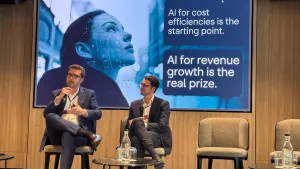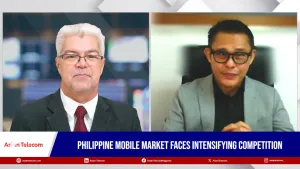
Emerging tech, digitalisation and proper safeguards keys to telecom industry transformation through 'future-back' approach
The telecommunications industry is now facing challenges in mitigating risks, but it has also been attracting various opportunities that could lead to the development of smart cities.
In today’s digital age, the telecommunications industry is facing major challenges including the need for proper controls and safeguards to fend off cyber attacks, but it also comes with various opportunities such as the key role of emerging technology in transforming the industry, forward-thinking strategies, and the significance of digitalisation in driving sustainable social infrastructure.
Wilson Chow, who currently heads PwC’s global technology, media and telecommunications (TMT) industry practice, is also the TMT industry leader for PwC in Mainland China and Hong Kong. He has been working in public accounting in the said areas for more than 30 years, and has had extensive experience in providing assurance and advisory services to companies in the TMT industry.
Chow emphasised the importance of establishing proper controls and safeguards to protect against cyber attacks in the telecommunications industry. In today's interconnected world where sensitive information and critical infrastructure are at risk, companies must invest in the right tools and practices to mitigate the risk of a breach. This includes investing in technology, upskilling their workforce, and implementing both preventive and detective types of controls to protect their assets, amongst others.
Darren Yong, Asia Pacific Head of Technology, Media & Telecommunications at KPMG, meanwhile said emerging technologies can be a crossroad moment for telecom firms. Yong has more than 25 years of experience in Telecom and Information Technology, and has led KPMG's key tech engagements in Strategy, Data Migration, Cloud, Blockchain, and use case builds, amongst others.
He highlighted that Web 3 and ESG are amongst those needed in reassessing the future and transformation of telecom. As the demand around digital and ESG continue, companies must adopt these new and emerging technologies to stay ahead of the curve and meet the needs of their customers. Those who succeed are companies that also intertwine social responsibilities to attract talents with a greater purpose, which cultivates a culture of innovation and the ability to quickly adapt to change.
For his part, EY Asean Technology, Media & Entertainment and Telecommunications Leader Joongshik Wang suggested that telco companies should adopt a future-back approach in today's market. Wang has extensive experience as a strategy and M&A consultant, wherein he served a wide variety of clients within the technologies, digital media, and telecom industries.
According to him, by looking ahead to the future and anticipating the needs of customers, companies can stay ahead of the competition and drive growth. This requires the ability to identify innovative services, as well as a focus on the integration of new technologies into existing systems and processes.
Finally, Deloitte leader Michinori Sato explained the significance of digitalisation in driving sustainable social infrastructure in telecommunications. Sato, Deloitte’s Asia Pacific Communications, Media, and Entertainment Leader, has a proven track record in competitive strategies in digitalisation, 5G and 6G eras, and management reform leadership. He has over 20 years of consulting experience in business strategy, new business planning, digitisation strategy, global business reform, and M&A support.
He stated that the telecommunications industry has a unique opportunity to play a key role in the development of smart cities and the creation of a more connected, sustainable future. This requires investment in digital infrastructure, the development of new technologies, and the integration of digital services into existing systems and processes.
In conclusion, today's interconnected world has opened up the telecommunications industry to possibly creating smart cities. However, this requires investing in infrastructure, having the right tools and practices to mitigate risks, adopting emerging technologies, as well as taking a future-looking approach that anticipates the needs of the industry.
Chow, Yong, Wang, and Sato are the judges at the Asian Telecom Awards. For this year's entries, they are looking for companies that display a focus on agility and innovation, as well as embrace disruptive technologies in any capacity, amongst others. To find out more about the awards programme, click here.











